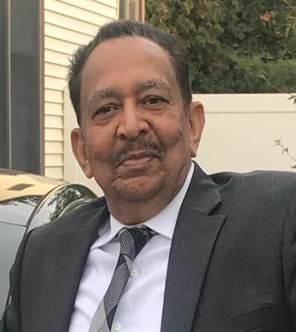According to the Catechism of the Catholic Church, the liturgy is an "action" of the whole Christ, one that recapitulates the eternal drama in which "the Spirit and the church enable us to participate whenever we celebrate the mystery of salvation in the sacraments". It is a celebration of the whole community: participative, connective, and joyful. We have Altar Servers, Lectors, Extraordinary Eucharistic Ministers, Lighting Candles, Incense Carriers, Cleansing of Holy Linens (Martha), Ushers and Offertory in our liturgical ministry.
Lectors: The Word of God constantly proclaimed in the Liturgy is always a living and effective word through the power of the Holy Spirit. It expresses the Father's love that never fails in its effectiveness toward us. The Spirit makes present and communicates the Father's work, fulfilled by the beloved Son. Pope Francis insists that evangelization relies in a deeper understanding of proclamation. Engagement with the community and deepening your life in that community are precisely what you accomplish as a lector, Gospel reader, and proclaimer of the Word. The Lectors are selected from the Congregation including women and youth. Families celebrating birthdays, wedding anniversaries etc. are coming forward to be Lectors for the Mass. Thus every lay person gets a chance to proclaim the word of God publically. The Lectors practice and prepare the readings as they are aware that effective proclamation involves the delivery of the message with clarity, conviction and appropriate pace. In The act of communal listening, the worshipers experience not only unity among themselves but also the presence of Christ speaking to them through the Word. We have two Lectionary for the old and new Testament readings. Both the Ambo at the Altar are used for different readings.
Extraordinary Eucharistic Ministers: The Extraordinary Minister of Holy Communion in accordance with canons 709 & 2 of Code of Canons of the Oriental Churches and Article 146 of the Particular laws of the Syro-Malabar Church. In accepting this ministry of service to the Christian community one must be willing to strive more earnestly than ever to live according to the gospel of our Lord Jesus Christ. By living faith and generous service to others one will deepen devotion to the Eucherist which beautifully signifies the unity of the church and brings it about. In this sharing of the Eucharist with your brothers
Altar Servers: Catechism teachers trained children serve at the altar during Eucheristic service. The DRE is the coordinator of the Altar Servers. They prepare carefully and take turns in serving during English and Malayalam Mass. The Mass response and prayers, including Scripture much of which, even in English translation, comes through poetry. Practically speaking when you read aloud, there should be a stress, an emphasis. The prayers of the Faithful are part of the Liturgy of the Word. The Altar Servers announce the intentions from the ambo. Each server participates actively in the entire liturgy. Servers hold candles when the Celebrant reads the Gospel.
The Incense: The use of incense is done throughout the Mass. The priest and server take turns to use incense around the altar, middle of the congregation, purify the chalice, raise the prayers, worship etc.
Ushers and Offertory: The youth in the church volunteer for the collection of the offerings by going from pew to pew. They are trained and guidelines are given before approaching the congregation about the importance and sanctity.

